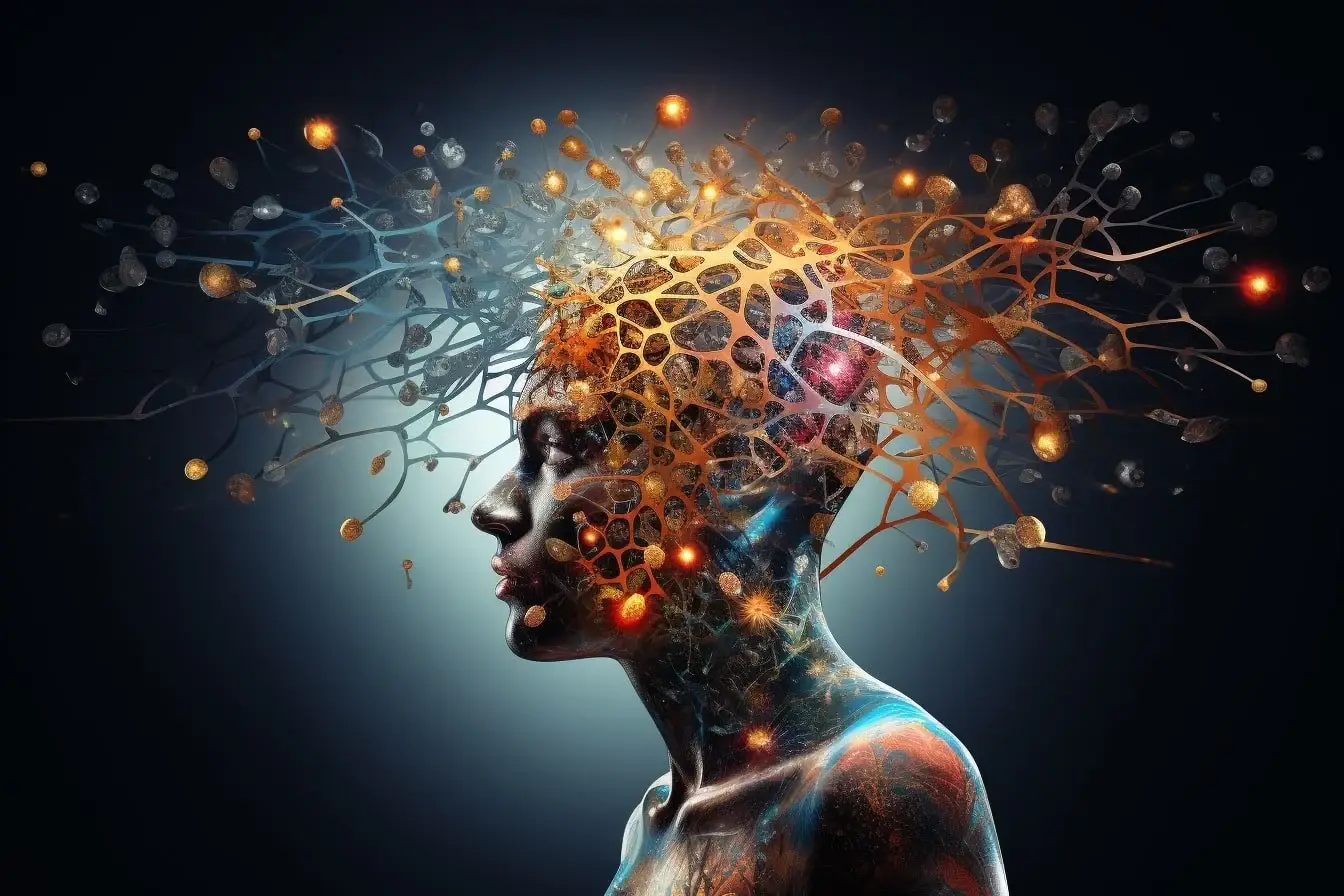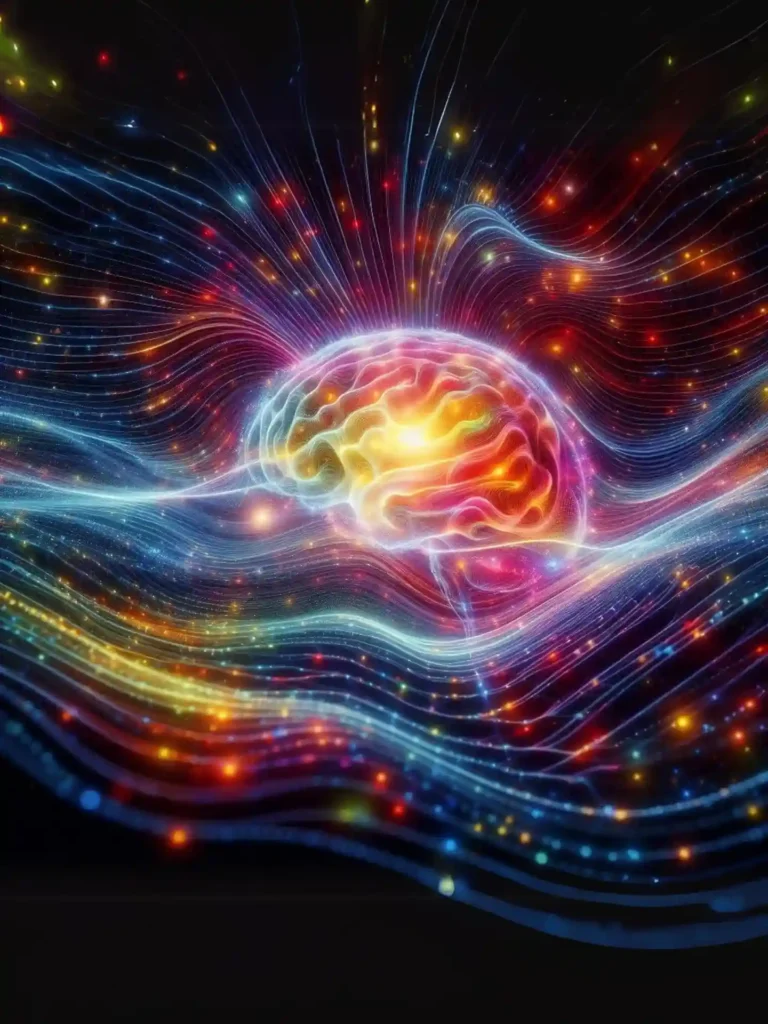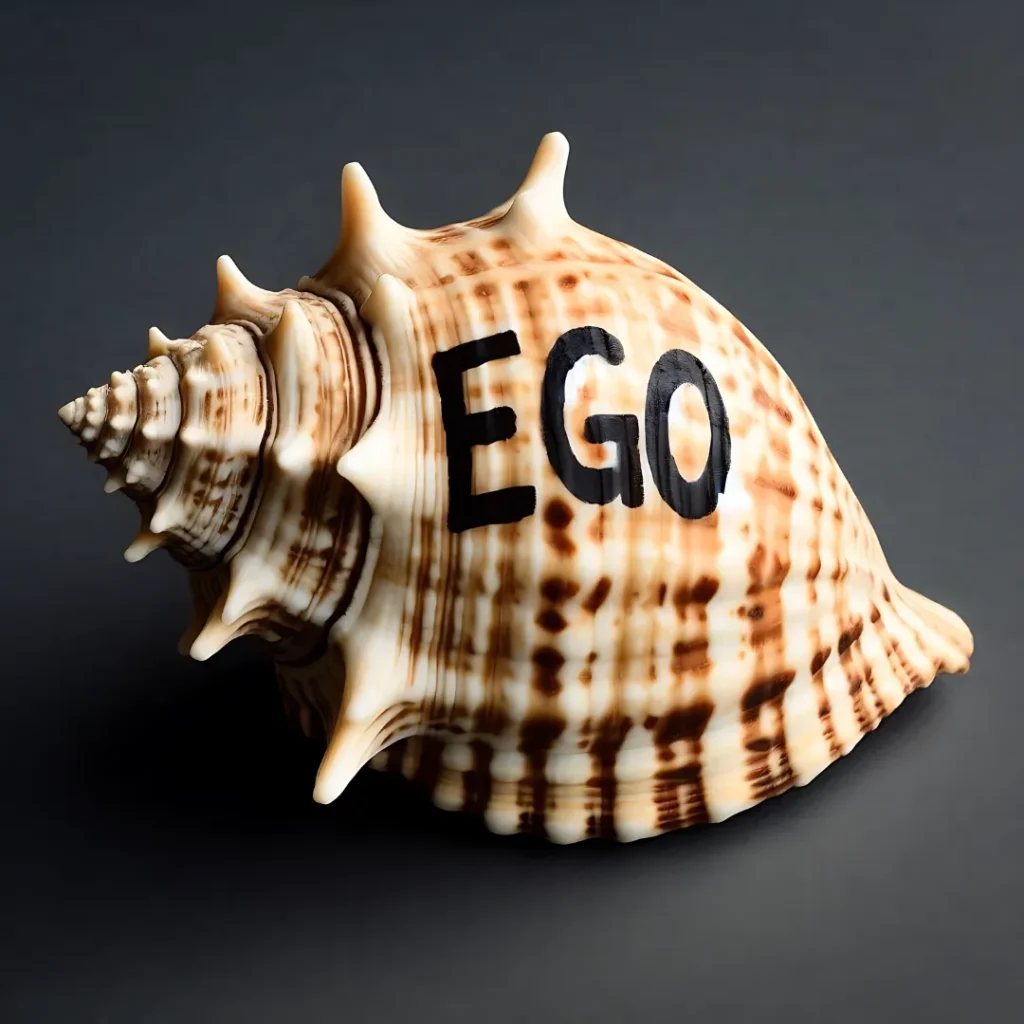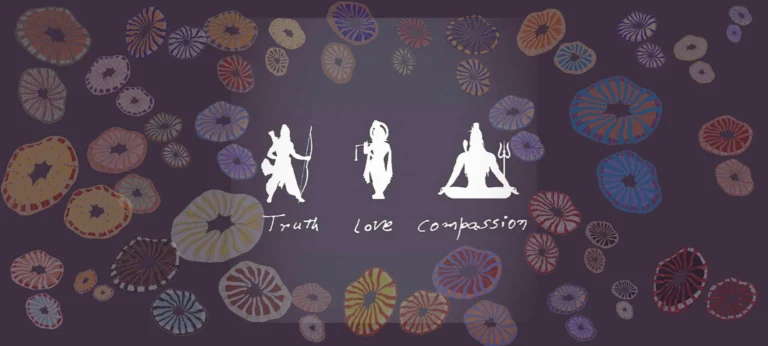Please Like the Blog and Share it for Maximum Reach
Table of Contents
Discussing the Mind and its Attachment
Life is determined by how we are, within. The one responsible for bringing in heaven or hell even in a literal sense is mind and mind alone. The most important sticky aspect of the mind is our attachment to the body and things. So, in order to set right our life completely, it is important to have fundamental knowledge of the mind and then the next step is to understand its illusionary tricks that cause havoc by way of attachment.

This is a sincere attempt to understand the two fundamental topics of Mind and its attachment to things and people.
What is Consciousness?

There are two major components within the living organism; consciousness and the mind. When consciousness takes a grosser, tangible form, it is called the mind. Consciousness and mind work in tandem to give us an experience of the world. Consciousness itself is non-matter, divine which cannot be controlled or known through material laws. It is beyond the scope of all that we experience. It is the experiencer and the very subject that experiences.
Mind drives the world
Mind is the aspect that is enlivened by the flow of consciousness. This can be compared to the flow of current into a gadget. Unless current flows, the gadget is non-functional. Similarly unless consciousness enlivens the mind, mind can be considered to be inanimate and lifeless. As soon as consciousness triggers the mind, the various finer aspects of the mind shall come into action.

It also becomes important to understand the broad components of the mind, so that this understanding can help us go deeper into the mechanics of the mind. Understanding the mechanics of the mind shall, for certain, give us direction towards better mind control, through valid practices, spiritual in nature.
Just as a scientist understands the constituents and the effect of chemicals and thereby puts it to use for widespread consumption, our understanding of the various segments of the mind shall give us an insight as to how the mind can be put to better use. The following are the segments of Mind.
Memory
A great portion of the mind is memory. Memory does not only exist in the physical brain. The physical brain is one of the important bodily organs where memory is detected. It can however not be proved that memory is “in” the brain.
All our body cells have cell memory. Cells have memories of billions of lifetimes that the living entity has passed through. Cells are produced by the subtler aspects of consciousness and have become a store-house of memory. It is cells that determine our taste habits, our likes, dislikes, preferences and a million other things that determine our lifestyle and our inclinations.
They say that there are approximately 15 trillion cells in the body, but there is no science to prove it for certain. It is like trying to count the number of atoms in a drop of water. If there are so many atoms in water, can someone determine the atoms in the ocean? The same logic applies to cells. Cells have impressions and impressions can be affected in millions of ways.

Hence our body memory is infinite and it has its effect on our very core. This memory is the storage aspect of the mind, just as RAM and ROM are considered to be the short-term and permanent memory of a computer system. In Sanskrit this memory is also referred as Chitta or the store house of impressions and influences.
Manas
This is the processing aspect of the mind. This is the aspect of mind which inspires, engages, influences, and concentrates the senses prior to the activity, before volition actually takes place. This is like the Central processing unit of the computer. Depending on what our memory and past experiences have accumulated, the mind manipulates and uses that information for delivering a certain task.

If our past memories are harsh, disturbing and gruesome, the mind shall be influenced in that manner and shall color the world and view the world in that perspective alone. If memories are pleasant, then the mind shall take up pleasant engagements. If hurt has been hurled into memory, the mind shall be distracted and virulent in the way it approaches the activities of the world.
A man whose father has been a thief and has trained him in robbing, cannot engage in anything else other than robbing. Unless there is a strong influence of another powerful being who is benign and unselfish, a robber shall remain a robber. This is how the mind functions and acts. Manas also is composed of thoughts and emotions.

However the Manas is reactive by nature and if not directed by intelligence as discussed below, it can mislead a person by triggering unnecessary thoughts and emotions. Manas has a great component of matter and reflects the lower functioning of the living entity. Its functioning is extremely situational by nature.
Buddhi
This is the higher faculty of the mind. The first two aspects of the mind namely Chitta and Manas are more or less passive and they do what they are told to do. Chitta holds information and Manas behaves in accordance with the type of information that Chitta has within itself. Buddhi is where change can be influenced. The ability to decide and choose comes with the involvement of Buddhi. Buddhi has aspects namely intellect and intelligence.
Intellect
Intellect is the ability to view the same information by slicing and dicing it. For example if there is a big act to be performed, it is important to approach the process in the right manner so that the nuts and bolts of the process can be understood and delivered. For example, if we are required to influence a crowd by our public talking, we need to consider the building blocks to be able to get prepared for the talk.

This can be the work of the intellect. From the final goal of an effective talk, there is a reverse engineering of the steps to deliver a great talk. For example, we need to know who the audience is, what could be their background, what can sell or strike a chord with them and so on. This is the intellect aspect of the mind.
Intelligence
Intelligence is a highly refined aspect of the mind that is capable of taking decisions. This aspect is subtle and evolves, towards developing wisdom. The act of decision making, depends on finer aspects of one’s character, one’s welfare. Intelligence reflects the decision-making capabilities of the mind related to life as a process, about the things that are meant for the long-term benefits of the living entity.

When intelligence is refined, the aspect of consciousness or purity is reflected in intelligence, which when employed, pushes the living entity towards its ultimate welfare. Insight, Wisdom, Faith and other intangible aspects of life relate to the level of development of Intelligence alone.
Ego
This is at the core which is nearest to consciousness. Ego, however, has nothing to do with intelligence. “I am the body-mind”, this feeling or push towards life is initiated by Ego alone. Our whole genetic core rests in our ego. It is ego alone which gives the feeling of “I, Me and Mine.” The goal of spirituality is to end the influence of Ego on our lives.

The harder the ego, the less will intelligence work and vice versa. Ego can be said to represent the blinkers of the soul or consciousness. Consciousness is light while Ego is an aspect of darkness that limits the light of the soul and binds the soul to matter and materialistic emotions.
A man who is less loaded by the ego, has a free-mind. He shall not be dogmatic in approach and will be blessed with high-intelligence. Sometimes when Ego is very high, it reflects as self-pride, arrogance, envy, jealousy and a whole lot of negative characteristics that limits the experience of the living entity.
Purifying the Mind
When the mind is purified at all the levels mentioned above, it shall have a releasing effect on consciousness. Consciousness blooms and the living entity is elevated. Spiritual practice, mantra chanting, meditation, following the path of enlightened masters, Listening and implementing the principles of Sanatana Dharma are the methodologies to reform and refine the mind.
When the mind is heavy and dirty, we experience bondage. This bondage is of our compulsive habits imposed on us by memory and Manas. However when spiritual discipline is undertaken, memory is released of its load. Thoughts and emotions shall undergo purification just as a dirty sullied cloth is cleansed by dipping it in detergent water for some time.

Spiritual discipline impinges into the various impure layers of the mind and purges it. Distortions are removed when one engages in Satsanga and gets the proper, higher perspective of life. One gets encouraged to reorient one’s goals and ambitions. Such a reorientation shall release the mind from the very bondage of materialistic living that has been taking its toll.
7/8 Questions from Sanatana Dharma
The scores generated in this Quiz may or may not be absolute. There may be right or wrong answers to each Question. A percentage towards 100 indicates that you are more aligned to the overall subject matter.
This subject is a deeper aspect of our day-to-day life. This topic becomes one of prime importance if one is to take up “spirituality” as an essential or pivotal component of one’s life. “Normal” material life, the life of a common man, revolves around matter, which means it moves around family, relatives, goals, ambitions, success, failure, likes, dislikes and a host of such entities related to matter.
When one applies one’s mind in the matters mentioned above, essentially it means that one does not have a permanent central goal. For example when someone says “I want to become a pilot.”

He works towards it and becomes a pilot, he will need to set another goal after that. Even if one does not become a pilot, he shall feel sad, nevertheless he has to set a new goal. Life in this case is a set of fast moving goals. In all these circumstances there is nothing to pivot the mind. The mind becomes a dump-yard of matter and materialistic emotions.
One is attached to one’s father and mother and serves them well. But life changes and when he is of marriageable age, the son gets married. But his center has shifted. His spouse becomes the center of his life. When they have a son, the son becomes the center. When the man does well in office, his promotions become more important. Here too in relations, the goal is moving without a certain harmony.

This tendency to stick to material relatives, matter or any aspect of this world is called “Attachment”. Attachment shifts from time to time but the “nature of attachment” is consistent right from our birth to our grave. It is only due to this tendency or “instinct” of attachment that makes us go in the cycles of 8.4 million life species. The instinct of attachment is universal and one of the most essential properties of the mind. It is attachment alone that makes the world go round.
Since one is attached to individual, events, place and other material entities, one is able to move in time. If the mind were not to possess this property of attachment, one’s memory as an extension of the mind would have become fickle. It is a different thing that amnesia or other diseases also represent “lapses in someone’s memory”. But this is due to the problem in the instrument, the brain. The mind in these patients would be intact and their minds would exhibit the same tendencies as any normal individual, if there were some mechanical means to detect it.

Only thing is that modern science has not developed far enough to capture the mind, although these few researches in the area of the brain, is not at all our area of interest. This is because it deals with the tangible electric signals and structure of the brain. It does not in any way represent the study of a tangible aspect of the mind. This is in the domain of psychiatry, which still deals only with the mood and function of the mind. In no way psychiatry has the capacity to determine the purity of mind, a subject of pure spirituality.
Attachment of the Mind
Attachment of any kind indicates “stickiness”, which makes things work in the material world. But we often hear enlightened masters talk about getting rid of attachment. They say that with “attachment to the world” in the heart, one can never cross over the ocean of nescience.
That property of the mind that is in charge of handling our survival, is to be relinquished, they say. This may appear overwhelming and preposterous to many. When the mind’s intrinsic quality is that of “attachment”, how can one, who is a user of the mind, which functions through attachment be rid of attachment?

To this, seers and sages go a bit deeper and try to explain the mechanics of attachment with some clarity. When one uses the mind in connection with all that is material, the attachment attains a hue of “matter” and that hue is responsible for our eternal bondage to “Nature”. Unless this bondage is ripped apart, liberation cannot be dreamt of. Then how is it that we hear of sages and seers who are alive and in a perfectly “liberated” condition?
The answer to this is that one need not worry about the “aspect” of attachment but one has to work on the “object” of attachment which has the answers. The scriptures say clearly that the mind has a certain blessing. If the intellect is used wisely and the direction of the mind is diverted to the “subject” which is beyond matter, this problem can be solved.
If a seeker takes up the practice of putting a check on the mind by nudging it towards the eternal Tattva or principle of “Atman”, “Brahman” or “Bhagawan”, that should set the mind toward its eternal goal. Now how can this goal be attained? The answer to this is as follows. If the mind is trained enough with the guidance of other enlightened beings and the Vedic scriptures, with consistent practice, Grace can be drawn.

It is this Grace which is “non-material” in Nature that shall ultimately rivet the mind to the eternal “subject”. When a stage is attained, where the mind does not shift from the subject of meditation which is “Atman” or “Bhagawan”, liberation is attained. This realization dawns upon that individual, on attainment. There is no way for a common man to tell if another being is liberated. It is realized within.
This is not a mechanical process, but depends on the commitment of the student, the strength of the practice and the Grace of the perfected Spiritual Master and Bhagawan. Once the mind is riveted on the eternal subject, automatically the objects of the world drop off from the screen of the mind and the mind loses its stickiness forever. The objects of the world drop off the mind, the way dry leaves fall off the tree, at the onset of autumn.
Please Like the Blog and Share it for Maximum Reach







